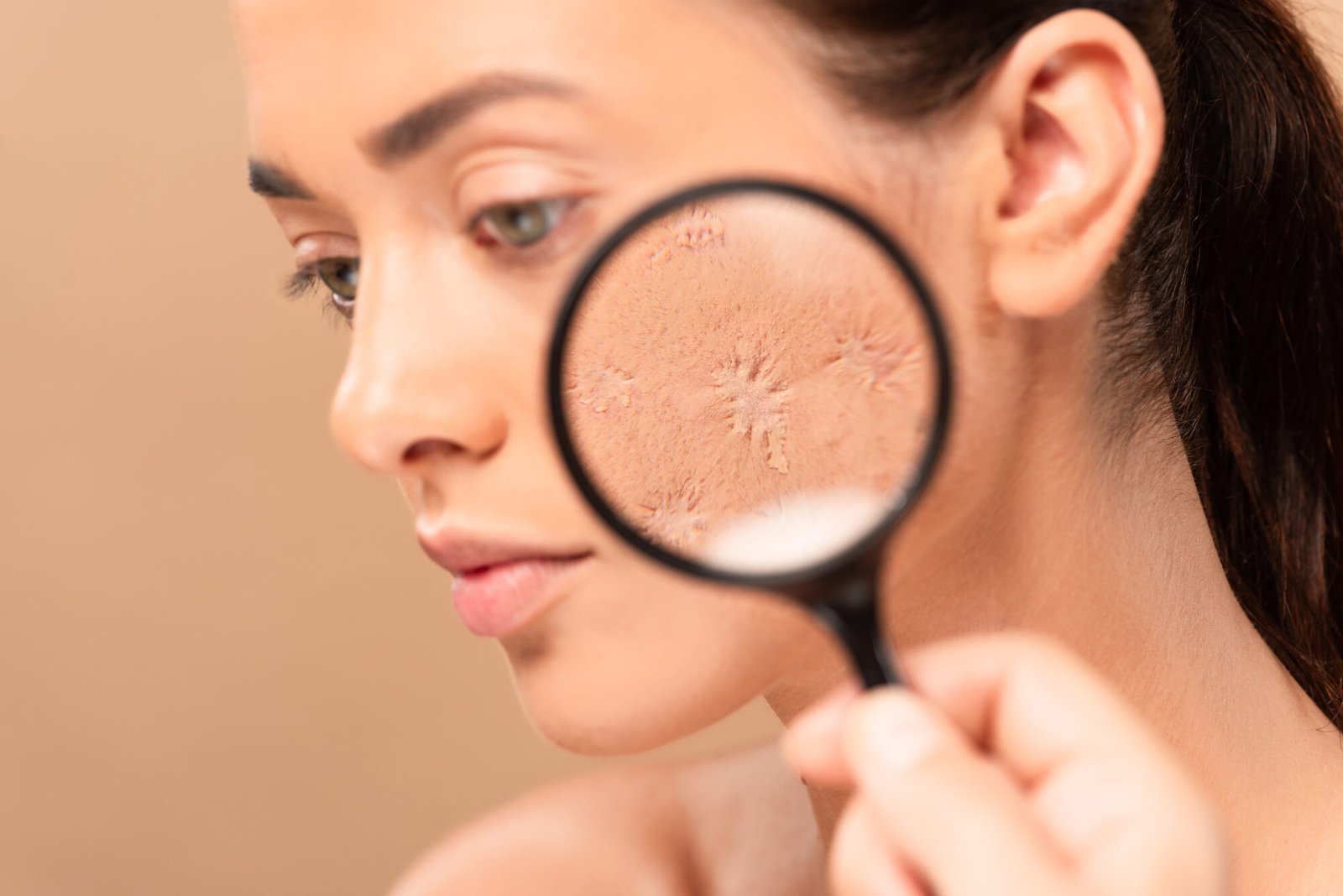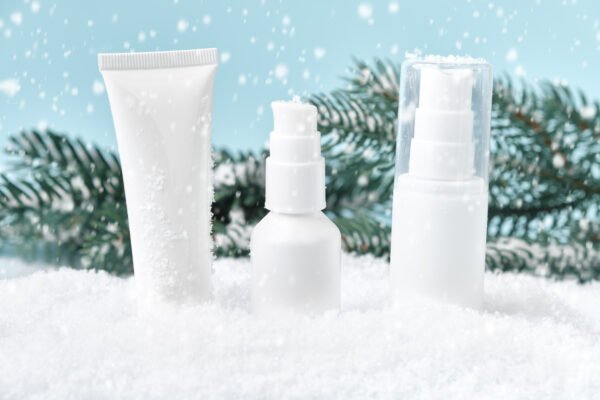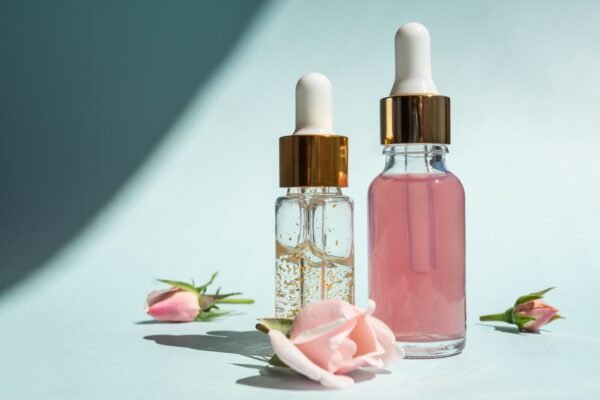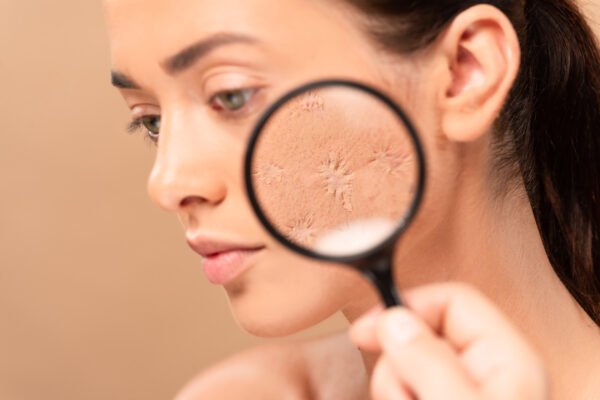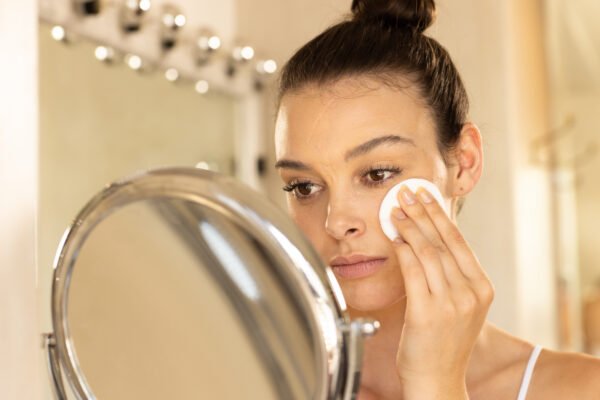Introduction
For many individuals, dry skin may be irritating and persistent. Tightness, itching, flaking, and redness may make dry skin more than simply annoying. Wellness enthusiasts, beauty bloggers, and skincare fans must know how to treat dry skin.
This comprehensive guide covers dry skin causes, treatments, and moisturizing strategies to keep skin healthy. We provide realistic and knowledgeable advice on seasonal and chronic dryness.
How to get smooth, supple skin!
Understanding Dry Skin
Dry skin, also known as xerosis, occurs when the skin doesn’t get enough wetness to stay soft and smooth. This problem can affect anyone, regardless of age or type of skin. To treat dry skin properly, you need to know what causes it.
Common Causes of Dry Skin
Several things can cause dry skin. Being outside in cold weather, low humidity, or too much sun can dry out your skin and make it lose its natural oils. Strong soaps and skin care products can also damage your skin’s protection against wetness. Finding these causes is essential to stop dryness before it happens.
Symptoms to Look Out For
Dry skin can appear in many ways, such as tight, itchy, flaky, or red. It may also have rough spots, mainly on your elbows, knees, and hands. These signs might make you feel bad and lower your confidence. Knowing these signs lets you know when your face needs extra care.
Understanding Your Skin Type
You need to use different methods for each type to keep your skin hydrated. Knowing your skin type—oily, mixed, or sensitive—can make your beauty practice more effective. For example, even thick skin can get dry sometimes, especially in the winter. Treatment will work best if you change your routine based on your skin type.
Effective Dry Skin Remedies
Now that we’ve discussed the basics, let’s examine some tried-and-true ways to treat dry skin. These treatments include easy lifestyle changes to special skincare items and procedures.
Hydration Starts from Within
Keeping yourself refreshed is one of the best ways to treat dry skin. Drinking water throughout the day will help keep your skin fresh. Adding foods that keep you hydrated, like oranges, cucumbers, and tomatoes, can also give your skin the nutrients it needs.
Choosing the Right Moisturizer
There are different kinds of lotions. Hydrogenated fatty acids, glycerin, and ceramides are some of the best ingredients for treating dry skin. These things help keep wetness in and fix the layer on your skin. Look for thick, smooth formulas that will keep your skin hydrated for a long time.
The Power of Natural Oils
Coconut, jojoba, and argan oils are all-natural oils that treat dry skin. When these oils get deep into the skin, they genuinely moisturize it. Putting a few drops on wet skin after a shower can help keep your skin soft and smooth by locking in wetness.
Moisturizing Techniques That Work
The right way to use lotion can make a big difference in effectiveness. Let’s look at some good ways to ensure your skin gets the water it needs.
Timing is Everything
When your face is still wet from a shower or bath, it is the best time to apply serum. This locks in more water. Use a towel to gently pat your skin dry, but leave it a little wet before putting on lotion.
Layering Products
Layering items can give people with dehydrated skin an extra moisture boost. First, use a hydrating cream or essence, and then a rich lotion. This step-by-step process ensures your skin gets the most wetness and nutrition possible.
Avoiding Hot Showers
A hot shower can be relaxing but can also dry out your skin by removing its natural oils. Instead, use cold water and reduce the length of your shower to prevent your skin from losing more wetness. Making this small change will help your face.
Lifestyle Changes for Healthy Skin
Your daily habits are essential for keeping your face hydrated. Changing your lifestyle can help your skin stay healthy and fresh.
Humidifiers for Home
A humidifier can add much-needed dampness to the air in your home, especially during the winter. This prevents your skin from drying out from the heat inside. Put the fan in your bedroom for a better night’s sleep.
Diet and Nutrition
A healthy, well-balanced meal full of vitamins and antioxidants is suitable for your face. Omega-3 fatty acid-rich foods, like salmon and flaxseeds, help keep skin moist. Foods that are high in vitamin E, like bananas and walnuts, also help protect your skin from damage caused by the environment.
Regular Exercise
When you work out, your blood flow increases, helping your skin cells stay healthy and fed. Sweating also helps remove toxins, making skin smoother and more hydrated. Remember to wash your face to eliminate sweat and dirt after working out.
Expert Tips for Managing Dry Skin
Getting professional advice can help when it comes to face care. Here are some tips from doctors and other skin care experts to help you better deal with dry skin.
Gentle Cleansing Practices
For dry skin, it’s essential to use a gentle wash that also moisturizes. Choose cleaners with relaxing chemicals like aloe vera and chamomile instead of harsh sulfates. Washing your skin twice daily will keep it clean without removing its natural oils.
The Importance of Exfoliation
Regular scrubbing removes dead skin cells, making lotion work more effectively. If you want smooth, healthy skin, use a gentle cleanser once or twice weekly. Do not exfoliate too much, as this can worsen dry skin.
Sun Protection
It is essential to keep your face out of the sun, even if it is dry. UV rays can make dry skin worse and speed up the ageing process. Sunscreen with at least SPF 30 should be used daily and reapplied every two hours when you’re outside.
Building a Skincare Routine
The best way to deal with dry skin is to stick to a treatment routine made just for your skin type and issues. Allow us to discuss a simple practice that will help you.
Morning Routine
Start the day with a gentle wash, then use cream and lotion to keep your skin hydrated. Don’t forget to wear sunscreen even if you’re not going outside. This practice helps keep your face hydrated and protects it from the world’s bad things.
Evening Routine
Cleanse your face at night to get rid of dirt and makeup. Then, use a nourishing night cream or oil to keep your face soft while you sleep. You could also use a moisturizer mask once a week to boost your skin’s moisture.
Seasonal Adjustments
This time of year may mean you need to change your face care practice. To keep from getting dry in the winter, choose thicker and more moisturizing items. In the summer, switch to lighter lotions made of gel. They won’t feel heavy on your face.
The Role of Sleep and Stress Management
Getting enough sleep and dealing with stress are essential but often forgotten ways to keep skin healthy. Let’s examine how these things affect the amount of water in the skin.
The Importance of Beauty Sleep
When you get enough sleep, your skin can heal and grow back. Aim for 7 to 9 hours of sleep every night so your skin is fresh and hydrated when you wake up. Set up a routine before bed to help you relax and get a good night’s sleep.
Stress and Skin Health
Stress that lasts a long time can damage your skin’s layer, causing redness and other skin problems. To keep your worry levels in check, do things that help you relax, like yoga, meditation, or reading a book. A calm thought is suitable for your face.
Creating a Relaxing Environment
A quiet place can help you sleep better and feel less stressed. Before bed, set up a relaxing routine by reading or taking a warm bath. Blue light from computers can make sleeping hard, so stay away from them before bed.
The Power of Consistency
Consistency is critical when it comes to face care. By making and sticking to a schedule, you can give your face the care it needs to stay healthy and fresh.
Patience Pays Off
Skincare takes time to work, so be patient with your practice. It could take a few weeks to tell you your skin is more hydrated. Follow your plan and have faith in the process.
Tracking Progress
Take pictures each week and write notes about your skin’s growth. This will help you figure out what works and what doesn’t so you can change your routine smartly.
Seeking Professional Help
If you have dry skin that will not go away no matter what you do, you might want to see a dermatologist. They can give you personalized advice and treatments to help you with your problems.
Conclusion
It’s not necessary to always fight dry skin. You can have smooth, supple skin by recognizing its causes and using efficient therapies and moisturizing procedures. Stay hydrated, pick the correct products, and adjust your lifestyle. With consistency and care, you can permanently eliminate dry skin.
Ready to upgrade your skincare? Check out our hydrating products and join our skincare community for recommendations. Start your healthy, radiant skin journey here!
FAQs
- Why is my skin so dry even when I moisturize?
- A moisturizer that doesn’t fit your skin type, not putting it on wet skin to seal in moisture, excessive weather, or internal heating might cause dry skin after moisturizing. Hydrate and try more decadent recipes.
- Does hyaluronic acid dry skin?
- Skin stays hydrated with hyaluronic acid. It pulls moisture from the environment and deeper skin layers to moisturize the surface. It may draw moisture from the skin in arid areas, drying it.
- How do you treat dry skin on the face?
- Use mild, fragrance-free cleansers, a hydrating serum, and a moisturizer with ceramides, hyaluronic acid, or glycerin for dry face skin. Seal moisture on wet skin and humidify indoor air using a humidifier.
- How to treat dry skin around the eyes?
- Use fragrance-free, moisturizing eye cream on sensitive skin. Find ceramides, peptides, and hyaluronic acid. Use your ring finger to dab the cream without pulling.
- Is niacinamide good for dry skin?
- Niacinamide produces proteins and locks in moisture to protect dry skin from environmental harm. Suitable for most skin types, it enhances texture and resilience.

